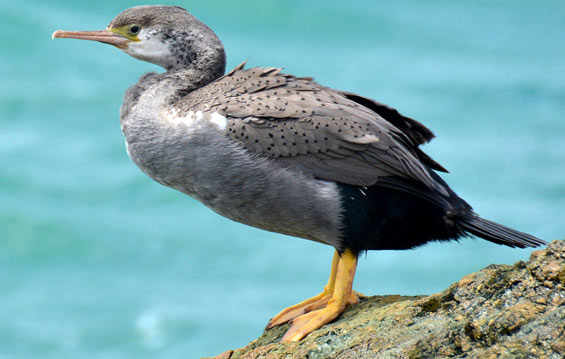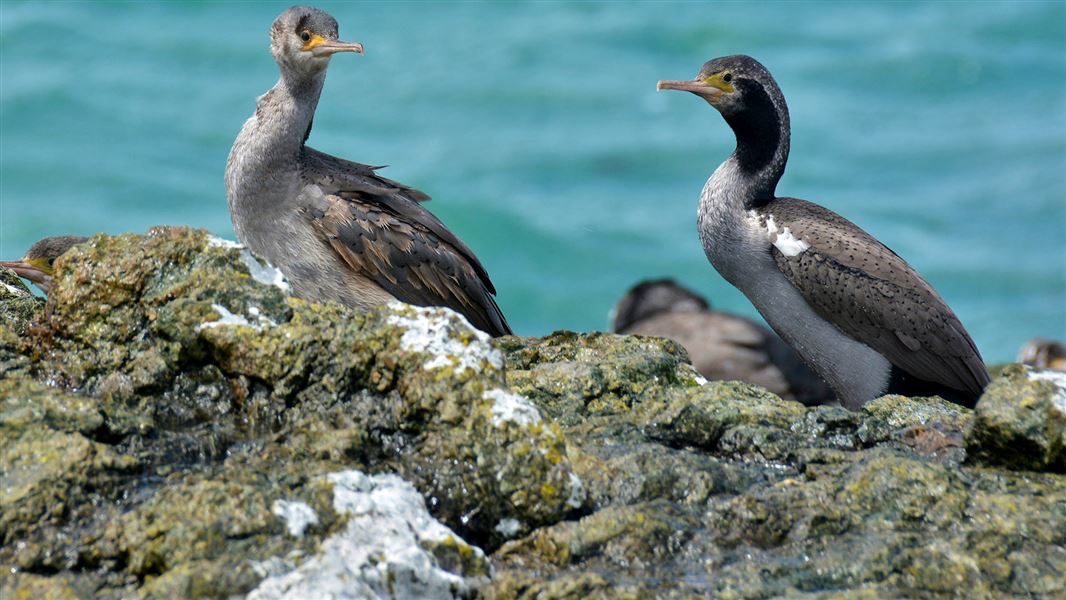New Zealand status: Endemic
Conservation status: Nationally vulnerable
Found in: Mainly around the South Island in coastal waters
Species information: Spotted shag/parekareka on NZ Birds Online
Spotted shags/parekareka (Stictocarbo punctatus) are mainly found around the South Island in coastal waters out to 16 km, entering inlets and estuaries to feed and roost. The Marlborough Sounds is a stronghold for the species.
Appearance
The spotted shag is a medium-sized, grey-blue marine shag with a long, slender bill and yellow-orange feet. Adult breeding birds have small black spots on their back and wings.
A distinctive curved broad white stripe runs from above the eye down both sides of the neck. They have a black crest on the front and back of the head.
Bare facial skin between the eye and bill turns green-blue before the breeding season. They make loud grunts at resting, roosting and nesting areas, but are otherwise silent.

Adult breeding birds have small black spots on their back and wings
Diet
Their diet consists of small fish and marine invertebrates, including squid and plankton. They feed in deep water up to 16 km offshore. Spotted shags breed in colonies of a few pairs to 700 pairs. Timing varies year to year, depending on food availability.
Nesting and breeding
Spotted shags are monogamous; 3–4 pale blue eggs are laid in a large nest platform made of sticks and vegetation, built on coastal cliff ledges and stacks. Incubation and chick-rearing are shared. Young leave the nest at 62 days.
